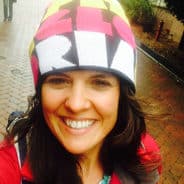Alpinehikers and Run the Alps first intern, Julia Maxwell, landed in the Alps in July and is excited to share her trail experiences with you. Here is a brief interview with Julia to introduce her as well as give us an idea what grounds her stories and what the heck she does when she’s not actively exploring every mile of trail in the Alps.
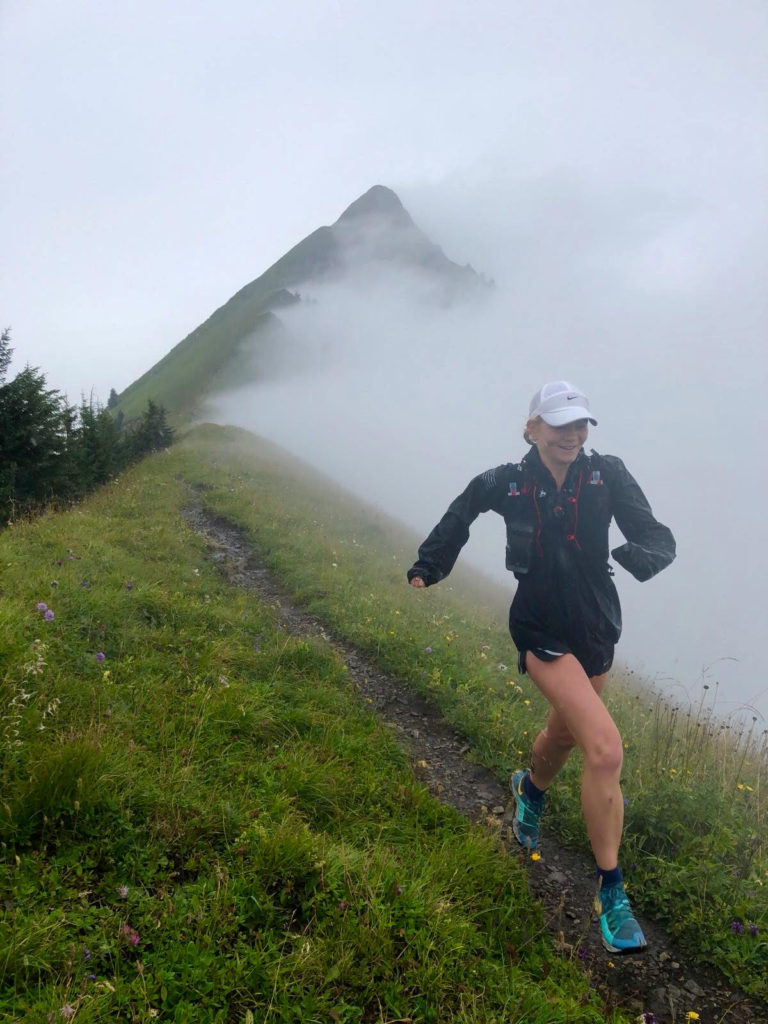
Eryka: Where do you call home?
Julia: I’m from Marin County California. Across the Golden Gate Bridge from San Francisco. The trail running, hiking and outdoor community is really vibrant. I grew up hiking a ton with my family and both my parents are big runners. A love of the outdoors is something that I grew up with. It’s a way of life for me since I was really little. The whole trail system in Marin is mostly on Mt. Tam. It doesn’t compare to the Alps but it’s beautiful. All throughout growing up and high school I was able to be outside and feel really lucky to have grown up there.
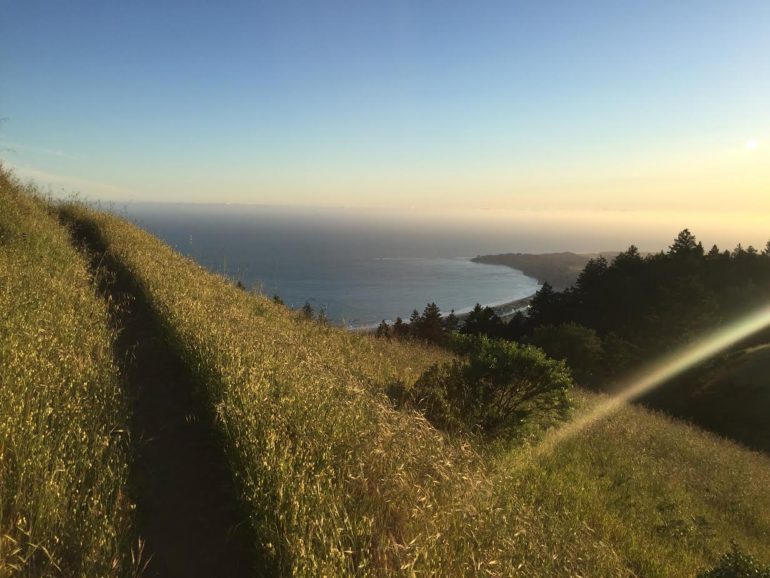
Eryka: At what point did you consider yourself a runner?
Julia: I always loved being outside. I played soccer and swam when I was little. What sticks out in my memory, I must have been 12, my mom would go out and run most mornings. It was summer and I didn’t have school. I asked her if I could come along as I didn’t have anything else to do. She accepted my request and I went with her and was able to jog for maybe a mile until exhaustion set in but I remember loving the feeling of running. When you’re young you feel improvement really quickly and I liked that. In PE we would have running tests and I loved being able to beat my previous times. I started doing trail racing in Marin country. My first real race was the Dipsea (Julia took 4th as a 13 year old!) and the energy of that just made me fall in love with running even more. Once I was able to see myself improve and felt how exciting it was to compete, that’s when I started to really feel like a runner.
Eryka: Outside of hiking and running, what other things do you like to do?
Julia: I grew up as a swimmer. Luckily I’m still able to do that for cross training. It adds fitness and helps your overall health. I really love traveling which is why this is the perfect summer for me. Last summer was the first time experiencing travel by myself while studying in London. This summer is another step up from that, traveling around the Alps running and hiking. I love cooking. I’m passionate about nutrition science and how food can be used as a powerful promoter of health. I love reading and writing which is also why this summer is ideal for me writing stories about my experiences in the Alps.
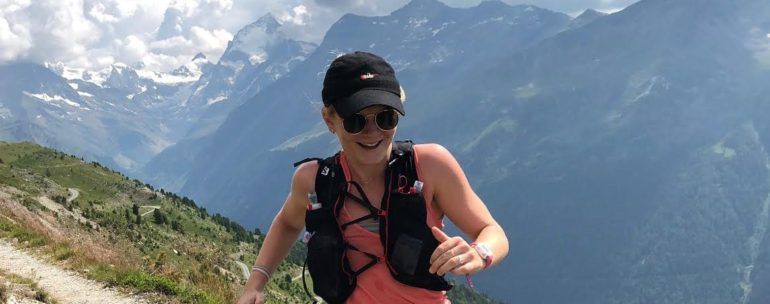
Eryka: This is your first time really experiencing the Alps, what do you think so far?
Julia: It’s amazing. Even when you say you’re out for a run it’s so steep (there’s so much vertical) that you end up hiking much of the trail. The hiking here is athletic and challenging but so rewarding as the mountains feel close enough that you want to reach out and touch them. There are glaciers and 4,000 meter peaks all around you on the trail. For people at all levels there are ways that you can have amazing hikes but cut out the challenging bits with gondolas, trains, buses. The transportation system here is set up for people that want to be out all day and cover 20 or 30 km or people that want to be out for an hour or two and return for a nice lunch. The range of possibilities for all levels and experience, I haven’t seen anything like this in the states.
Eryka: You just graduated from Stanford with a degree in Anthropology and nutrition. What cultural differences have you most noticed during your time in the Alps?
Julia: The cultural piece is really interesting. I think it’s easy to say that the food culture in Europe is so different than the US. But being here and living it, it’s amazing the difference. Food in the Alps is seen as a part of life to enjoy. I think in the states we think about it too much in a way. We differentiate healthy food, indulgent food, sports nutrition food and so on. In the Alps you seem to not have to attach all of the labels to what you’re eating. Instead you’re fueling your body and you’re enjoying it. A couple of the races that I’ve done here they’ve had chucks of cheese, chocolate, baguettes and dried fruit to fuel up on along the race. Here food is more seen as what you enjoy, you don’t over indulge and you don’t beat yourself up about eating it. People seem to have a healthier relationship with what their body needs and seem to listen to that more. It’s amazing how much locally grown produce there is and people really enjoy the foods that are around them and appear to be more connected to their food overall.
Eryka: Your parents started PowerBar? How has this shaped who you are today?
Julia: I think PowerBar is an important part of my identity, growing up with parents that run and started the brand. I think the biggest things about the legacy of PowerBar and what makes me most proud of what my parents started is around the original idea of what they started it in the first place; to enable athletes to reach their highest potential. At the time my dad was running high level marathons and there wasn’t quality food available for athletes to eat during and after races. The original product was a food that endurance athletes would eat during long endurance events; triathlons, long bike races. Where you need to be topping off your glycogen stores to prevent hitting the wall or bonking. At the time there wasn’t a sports bar available. PowerBar allowed sports to climb to the next level. Topping off your energy stores is so crucial to helping your body reach it’s limit during endurance events and now the entire performance bar energy bar industry is enormous on its own. I think it’s cool that it’s morphed into this huge industry. There are so many different variations that you can take with you to fuel your adventure. It’s a part of sports culture now and I think that’s really special. It helps people from all different levels of sport take their game to the next level.
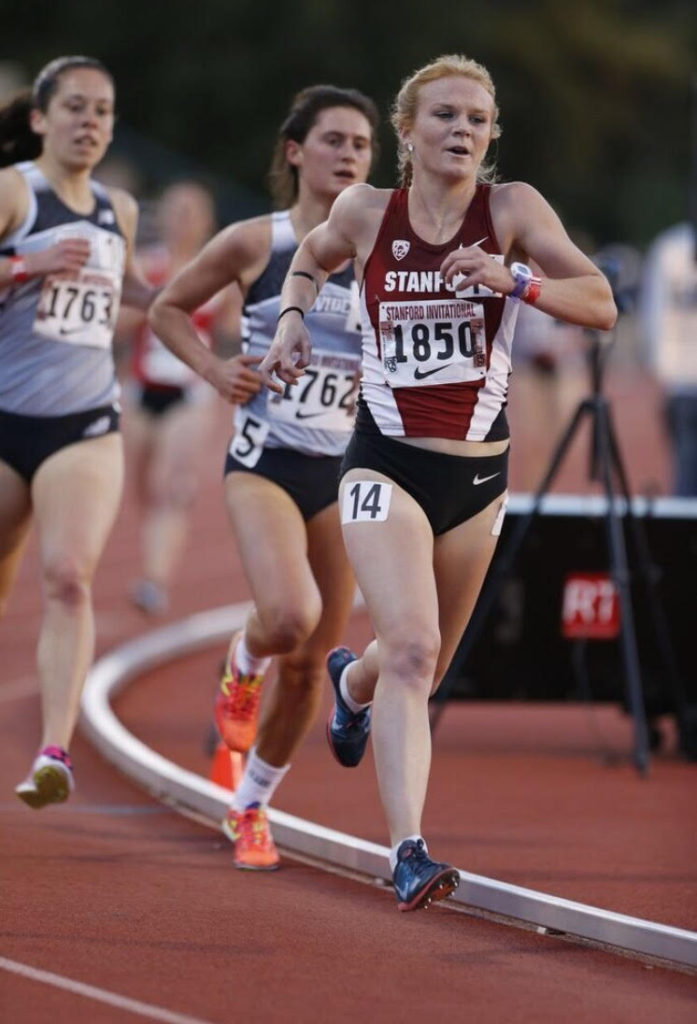
Eryka: For those of us who aren’t as familiar with PowerBar can you give us some background?
Julia: It was started in the 80’s. My mom studied nutrition at UC Berkeley. My dad also went there but had already graduated and was training for marathons and was living in Berkeley as well. It was my Dad’s idea as he wanted the product for himself and had this idea that he wanted something to eat for himself and his friends. It was a collaborative effort between the two of them as my Mom has a degree in nutrition. They traveled along the North coast going to running races and triathlons, cycling events, and giving out samples and getting athletes’ feedback. The company took off from there.
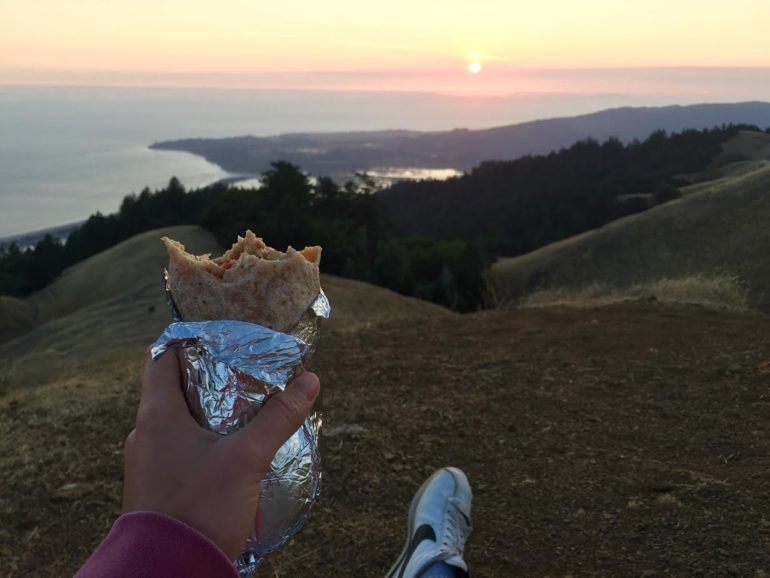
Eryka: What are you hoping to gain from this summer?
Julia: I ran track for 4 years at Stanford and that was an amazing experience and I feel really lucky to have that opportunity. My love for running is really rooted in the trails and it’s been cool to rediscover my love for trails and trail racing. Outside of racing just being out on long hikes feels like a return to self. Trail running is what started my love for the outdoors. Being in the Alps is the most beautiful place that I’ve ever been. The trails here are just beyond anything I’ve experienced. Nothing compares to the environment here. Having the opportunity to be around the people of the Alps has also been neat. Being able to travel and meet people that share a love for the outdoors and have been immersed in the culture of the Alps for several years has taught me a lot. Just being able to talk to them and have conversations, I can feel their love for the Alps.
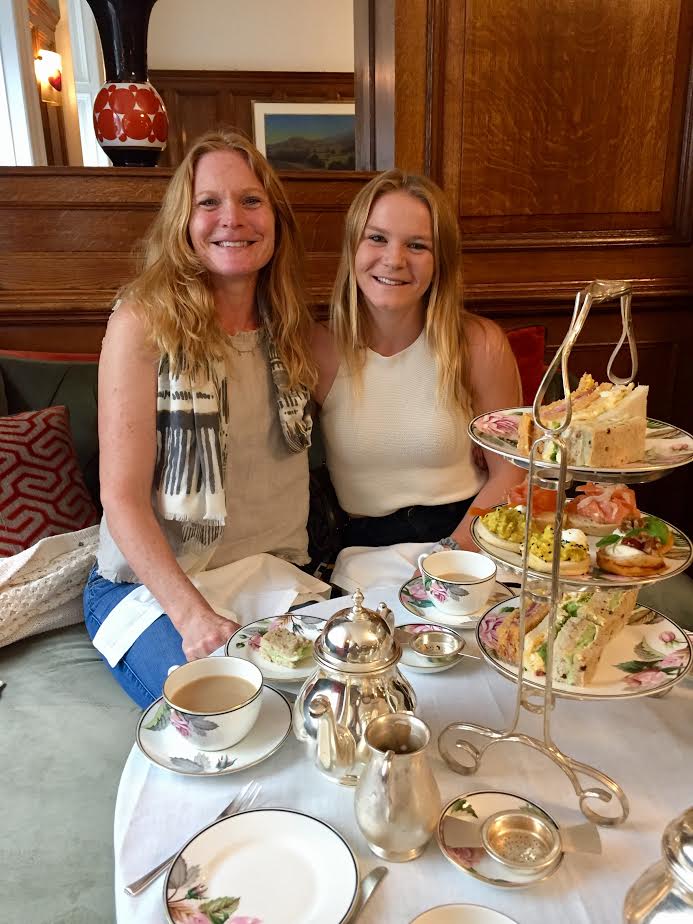
Eryka: What’s your next step after interning this summer?
Julia: I plan to go to Cambridge in the fall for graduate school. I’m studying social anthropology with a concentration on medical anthropology. It’s going to be a whole new world and I feel like I have a whole other adventure awaits me after this summer. I’m interested in how sports and athletics shape athletes’ interests and perspectives including their discipline, ritual, relationship with food, etc.. How identity is shaped by being within a team. How athletes approach racing and how racing shapes purpose and sense of self.
Eryka: Anything additional you would like to add?
Julia: I feel super lucky to be here and am so appreciative to Troy and Doug for giving me this opportunity. I hope to get some great stories to share with everyone.

